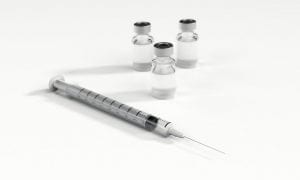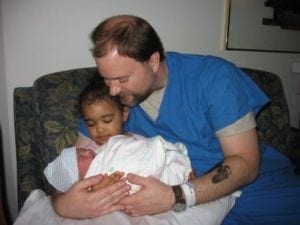Editor’s Note: We believe that patients are a key part of developing and leading the conversation in disease communities. Patient Worthy sometimes partners with reputable agencies that wish to speak with patients about opportunities related to their diagnosed conditions. These opportunities can include activities such as sharing stories with other patients or health professionals about their diagnosis journey or recording video testimonials. To learn more about how to get involved with an opportunity for hereditary angioedema (HAE) patients, click here.
Hi! My name is Allison Lockwood and I have a rare blood disease called hereditary angioedema (HAE). This disease causes excessive swelling mainly to hands, feet, face, and throat, but it can cause swelling anywhere.
I was born with this disease, but unlike some others I did not show any symptoms until my freshman year of college. I had several swelling attacks and just chalked it up as being allergic to something new. It wasn’t until my attacks started to be more frequent and more severe that I sought medical attention. I saw doctor after doctor and had 3 hospital stays. Eventually, the hospital told me not to come back because they didn’t know what to do for me. They explained that I may never know what was causing my episodes of swelling. This could always be a medical mystery for me.
Lucky for me, I had a mother who did not take that as an answer and continued to advocate for me and my health. I want to be very clear about the fact that my mother came across a picture on the internet and from that picture her research led her to the HAE Association. They had a place to look for a doctor near you. That is where we found our help. I always joke that my mom diagnosed me! My fight for a diagnosis was 5 years long and finally ended in May of 2019.
I was relieved to have a diagnosis, but even more so I was relieved to know there was treatment. Since that day, I have had to explain my disease to so many people, including healthcare workers. Many comments and questions are frustrating, like “Did you change your soap or deodorant ?” “What are you so allergic to?” “You need to take some Benadryl!” “Stop touching it and it won’t swell.”
In my experience, it has been hard to make people understand my disease. Here are a few things that can trigger an attack for me: extreme cold, extreme heat, stress, excitement, my cycle, new shoes, applying pressure on a certain area for too long, etc. Just as an example, if I ride a four wheeler and use my thumb to press the gas, in less than 10 minutes my thumb will begin to swell and ache. It’s very strange and it took me a long time to wrap my mind around it, too!
Rare diseases take a toll on the patient and the family and friends. I have a wonderful support system who understands if I just don’t feel like it, or if I need help walking because my feet are so swollen from my cute new shoes. Your support system will be strong when you are just tired, and you will have times of just being TIRED.
If I could talk to someone who was newly diagnosed with HAE, I would tell them to get prepared for a fight! Do not let their swollen face keep them from going out into public, do not miss the picture, do not just sit at home. HAE is wonderful at ruining all of your exciting plans and unfortunately, I did allow it to steal some special moments from me.
However, my greatest win over HAE was a swell free wedding day. I prayed for 7 months that God would keep the swelling away on that special day, and He did.
Editor’s Note: We believe that patients are a key part of developing and leading the conversation in disease communities. Patient Worthy sometimes partners with reputable agencies that wish to speak with patients about opportunities related to their diagnosed conditions. These opportunities can include activities such as sharing stories with other patients or health professionals about their diagnosis journey or recording video testimonials. To learn more about how to get involved with an opportunity for hereditary angioedema (HAE) patients, click here.








